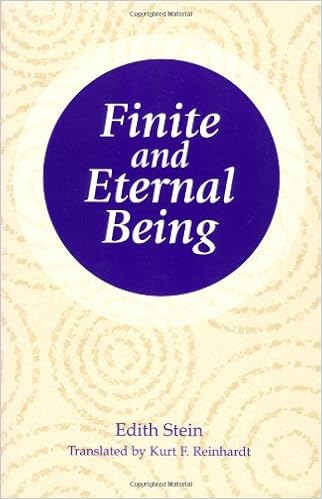
But it was still the most mysterious to me how she, coming from the school of Edmund Husserl, evolved into a domain of neo-scholastics...
To understand this, I started to read her "Finite and Eternal Being"...
From the outset, I was so deeply intrigued by this book, that I decided not to comment on it, but rather to collect the thoughts and ideas I found interesting. So, this post is a collection of quotes from Edith - quotes I collected while reading it. I found it intellectually more honest than trying to comment on something I still need to understand better than I do now....
To begin, let's see her own, deeply honest admission, made in the introduction to the book:
"This (...) seems especially appropriate in the case of the author of this book: Her philosophical home is the school of Edmund Husserl, and her philosophic mother tongue is the language of the phenomenological thinkers. She therefore uses phenomenology as a starting point to find her way into the majestic temple of scholastic thought."
I'm excited to discover how does she go along that path ...
First discovery is ... of the amazing clarity and objectivity Stein approaches philosophy with a deliberate distancing from faith and religion. The rigor she is applying to that distinction, comes, from St. Thomas Aquinas himself, and from many of thinkers of the "thomistic" tradition, like Jacques Maritain.
When writing about the goals and functions of philosophy she says:
"It is one of the function of philosophy to elucidate the fundamental principles of all the sciences"However, when she goes into the relation between philosophy and a religious doctrine, she remarks:
« Whatever derives from the synthesis of theological and philosophic truth bears the imprint of this dual source of knowledge, and faith, as we are told, is a "dark light". Faith helps us to understand something, but only in order to point to something that remains for us incomprehensible. Since the ultimate ground of all existence is unfathomable, everything which is seen in this ultimate perspective moves into that "dark light" of faith, and everything intelligible is placed in a setting with an incomprehensible background. That is what Erich Przywara means when he speaks of a reductio ad mysterium.»The intro, and its chapter "Is there a Christian Philosophy" is an amazing proof of the author intellectual honesty. Now, to the essence ...

